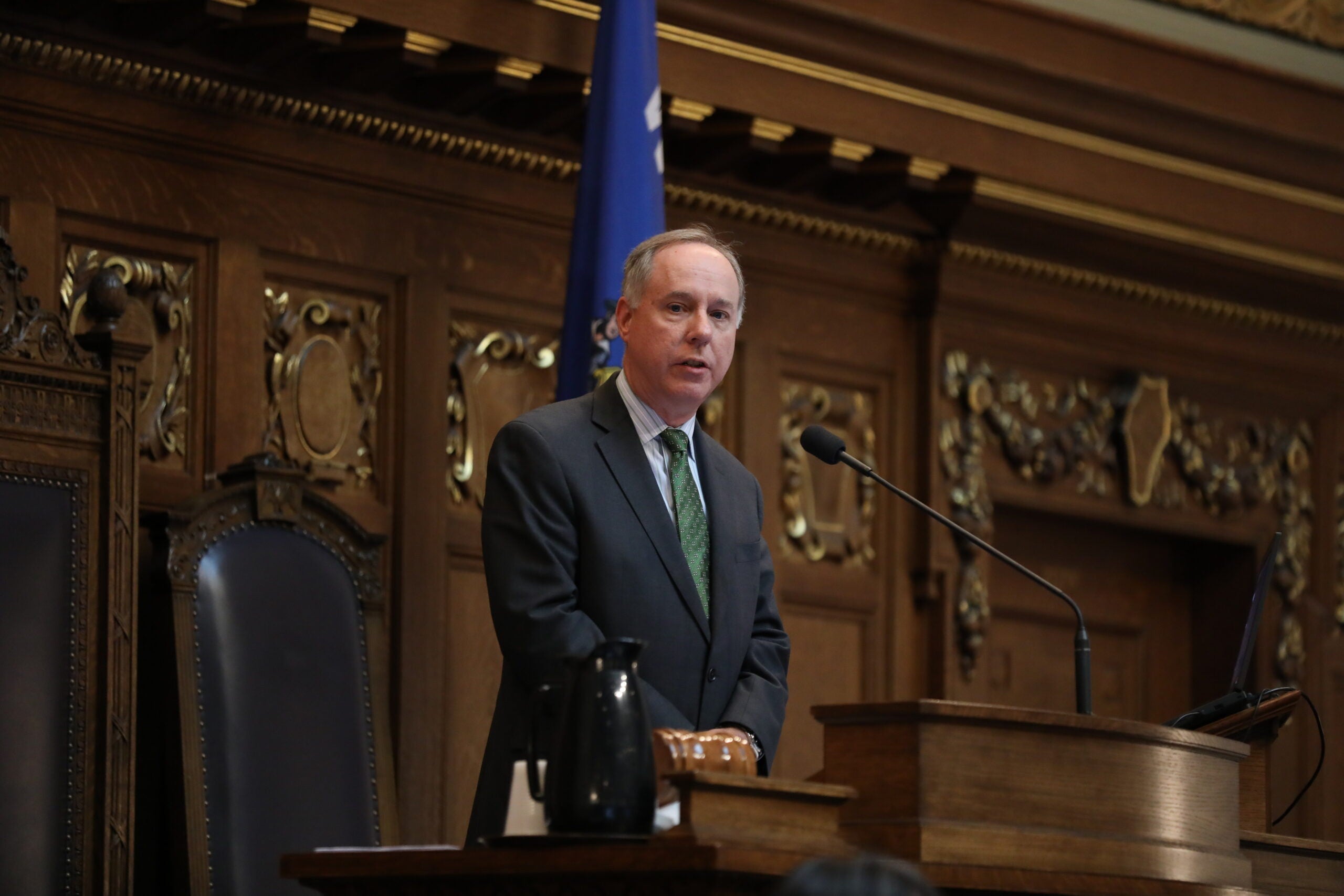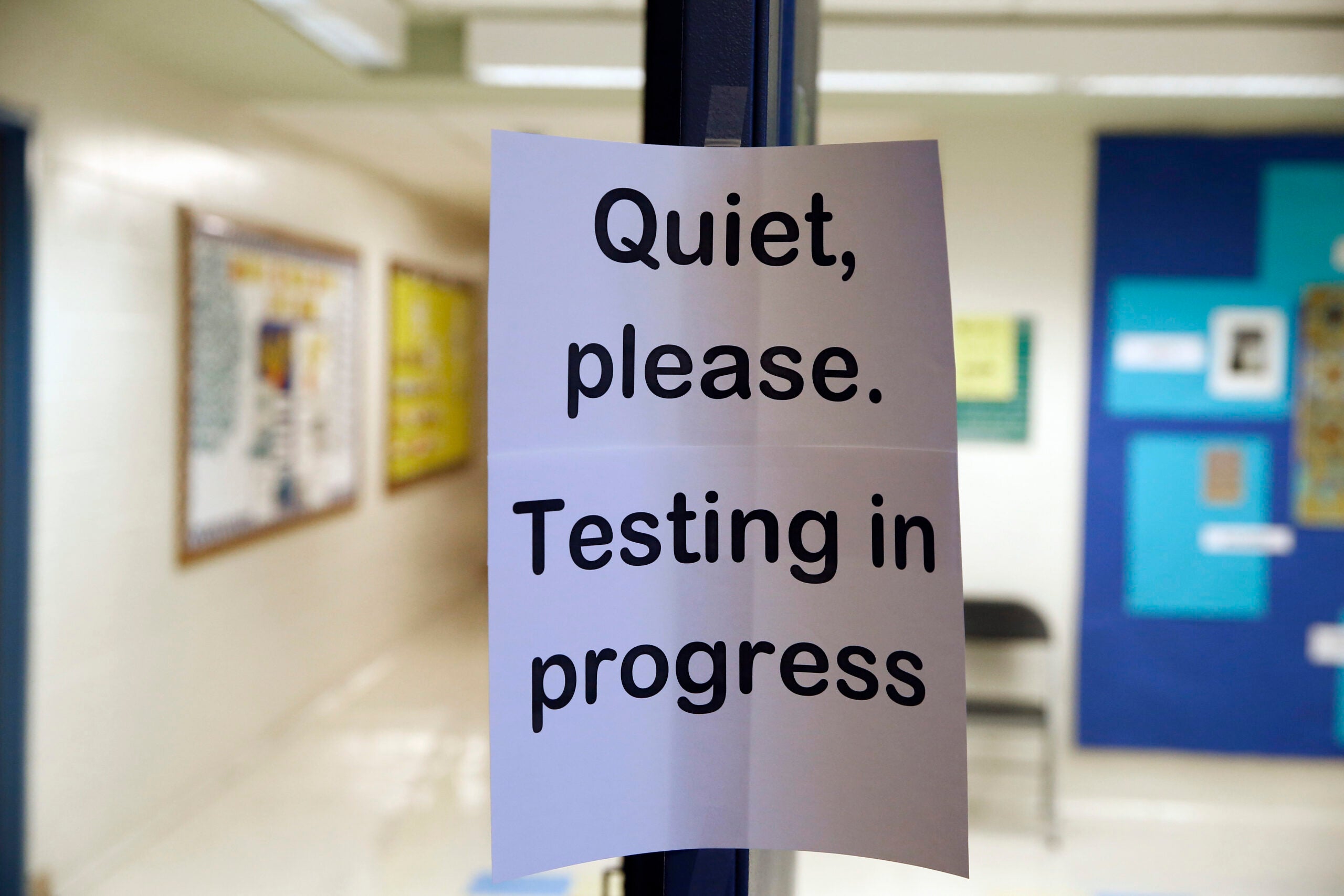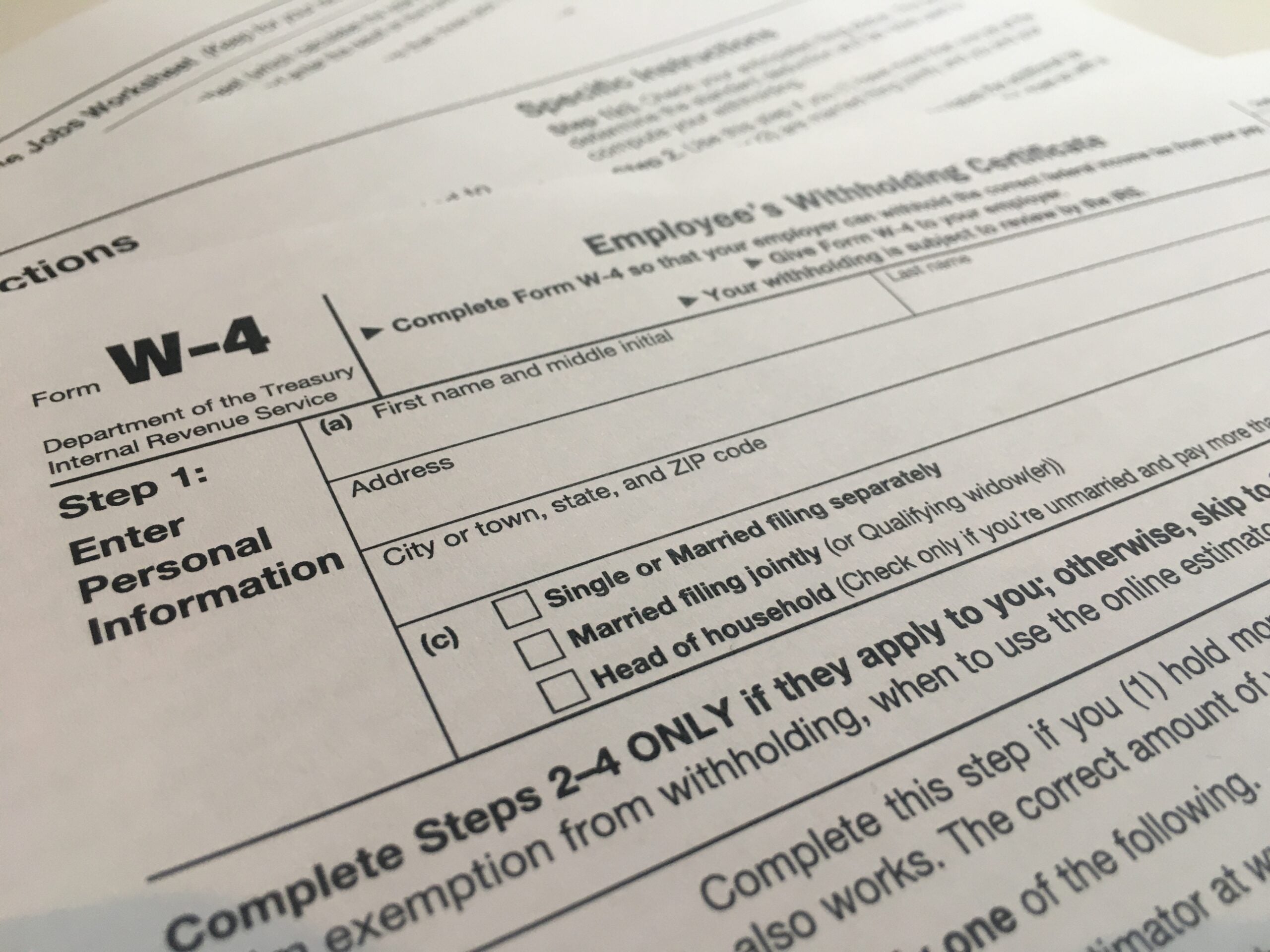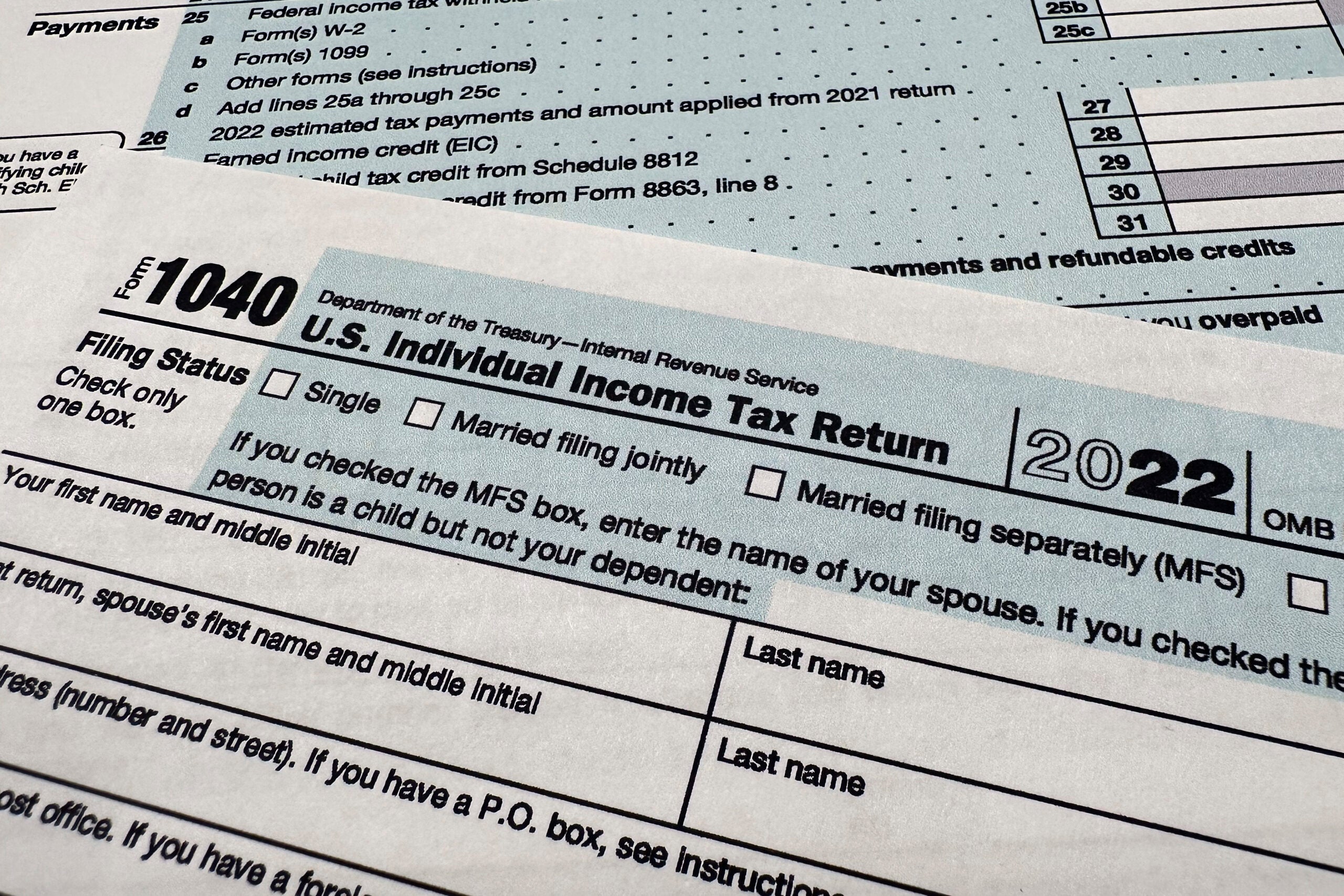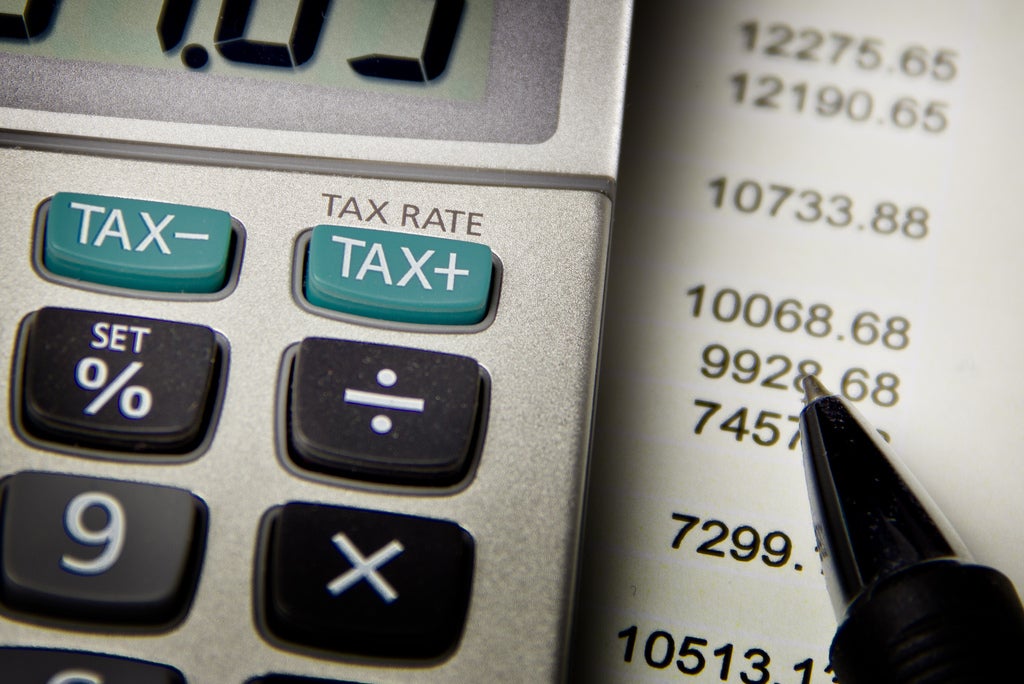Citing efforts to retain or attract more people to Wisconsin, state Republicans are urging the adoption of a flat income tax as lawmakers in the Capitol prepare for another round of state budget negotiations this year.
For example, during an appearance Monday on Wisconsin Public Radio’s “The Morning Show,” Assembly Speaker Robin Vos, R-Rochester, argued a flat income tax would make Wisconsin more competitive with tax rates in other states.
“Our state is graying faster than the national average, and we have not net new migration,” he said. “When you find out that it’s significantly cheaper for someone to live in Florida, Arizona, Tennessee or Texas, we certainly can deal with the tax climate to try to keep more of those people in Wisconsin contributing to our long-term viability.”
Stay informed on the latest news
Sign up for WPR’s email newsletter.
Vos said a flat income tax plan — which state Senate Majority Leader Devin LeMahieu, R – Oostburg, also embraces — would give everyone in the state a reduction in their taxes, including high-income earners.
Income tax rates in Wisconsin are currently split into four brackets based on income level:
- $0 to $12,760 is taxed at 3.54 percent.
- $12,760 to $25,520 is taxed at 4.65 percent.
- $25,520 to $280,950 is taxed at 5.3 percent.
- More than $280,950 is taxed at 7.65 percent.
For more on how a flat income tax could affect Badger State taxpayers, Wisconsin Policy Forum research director Jason Stein recently joined WPR’s “Central Time.” Stein talked about current and historical income tax systems in Wisconsin, Gov. Tony Evers’ response to GOP plans and what a flat income tax could ultimately mean for state coffers.
The following was edited for brevity and clarity.
Rob Ferrett: What is a flat income tax?
Jason Stein: What we would do under a flat tax is pick some tax rate — it could be anything — and that tax rate would apply to all taxable income that people report on their income taxes. So, instead of having multiple tax rates depending on how much income you have and at what level, you just have this single tax rate.
RF: How has Wisconsin historically been a progressive income tax state?
JS: This goes back some time. When you compare us to other states nationally, we are not the most progressive. In other words, we are not the most aggressive among states nationwide in taxing wealthy earners at a higher rate than low-income earners. But we’re definitely more progressive than average.
Now, that said, we have actually become less progressive in recent years … When we talk about making our state’s progressive income tax more flat in a modest or incremental way, that has already been happening.
READ MORE: Top Wisconsin Republican calls for lowering income taxes on wealthiest residents
RF: What are we hearing from Gov. Tony Evers on this subject? How would his plan compare to that from the GOP?
JS: It’s factually correct that under the governor’s plans, you’d see greater benefits for people at the lower- and middle-income levels than under most flat tax scenarios. If the upper income tax rate … is 7.7 percent or a little under that and then you lower the tax rate to 3.5 percent or something in a flat tax, that’s going to be a big drop. For somebody who only has income in the lowest tax bracket, there’s almost going to be no change at all because the current tax rate is 3.54 percent.
There is not just one flat tax proposal. There can be many. So, it does make some difference in what the deduction for the tax filer is and for any dependents they might have. Are there tax credits that would go to the working poor, low-income people for their property taxes or to veterans? There are things that could make a flat tax more progressive or less progressive depending on how you structure it.
But it’s certainly fair to say in general, any kind of flat tax proposal that was passed would be less progressive than our current system and would probably deliver more benefits to people at the upper end of the income scale.
RF: Is there any reason to worry about the revenue that could be lost from a change to the tax system?
JS: That is absolutely something to think about. Right now, the breakeven point for a revenue neutral flat tax is about 5.2 percent. That would be a tax increase for income at the lower parts of the current brackets.
If you want to lower that further, would you have to, say, increase the state sales tax or something like that, which would itself be a regressive move? Right now, if you look at Wisconsin’s income tax, it ranks about 12th or 13th highest nationally in terms of the taxes collected as a share of personal income. So, our income tax is relatively high in Wisconsin. On the other hand, our state sales tax and local sales taxes are relatively low below the national average.
A lot of times when we’re talking about any one tax, such as the income tax or the property tax, we get very fixated on that. But really, what we should be thinking about is the overall tax system that we have in the state and the overall pros and cons of it.
READ MORE: Wisconsin inches toward medical marijuana legalization as GOP leaders signal support
Wisconsin Public Radio, © Copyright 2025, Board of Regents of the University of Wisconsin System and Wisconsin Educational Communications Board.
